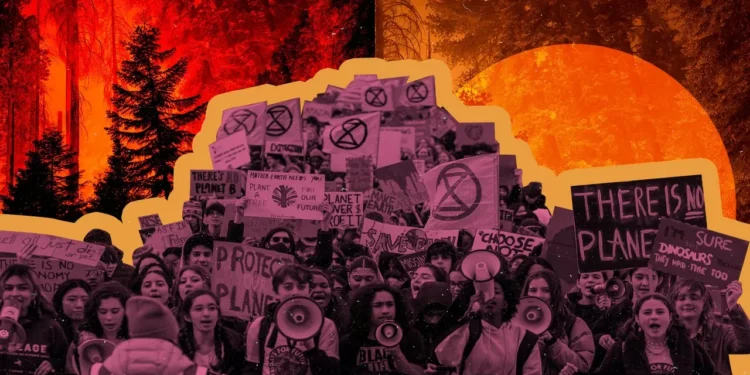The Climate Crisis: A Mental Health Crisis, But Not a Pathology
The world is facing a crisis like never before. The climate crisis has become a pressing issue that affects every single one of us. It is no longer a distant problem, but a reality that we are all living in. And with this crisis comes a new challenge – the mental health crisis.
The term “eco-anxiety” has been making its rounds in recent years, and for good reason. It refers to the fear, worry, and stress caused by the current state of our planet. The constant news of extreme weather events, rising sea levels, and species extinction can be overwhelming and can take a toll on our mental well-being. But is eco-anxiety a pathology? The answer is not a simple yes or no.
On one hand, it is important to acknowledge that the climate crisis is a real and urgent issue that needs to be addressed. The effects of climate change are already being felt by many, and it is natural to feel anxious and worried about the future. In fact, a study by the American Psychological Association found that 57% of Americans reported feeling “extremely anxious” about the impact of climate change on their lives. This is a valid response to a crisis that threatens our very existence.
However, it is also important to understand that eco-anxiety is not a mental disorder. It is a normal and understandable reaction to an overwhelming situation. In fact, feeling anxious about the state of our planet can be a sign of empathy and concern for the world we live in. It shows that we care about the future of our planet and the well-being of all living beings.
But the problem arises when this anxiety becomes debilitating and starts to interfere with our daily lives. This is when it can be classified as a mental health issue. It is important to recognize the difference between normal levels of eco-anxiety and when it becomes a pathology. Seeking professional help is crucial in such cases, just like with any other mental health concern.
So, what can we do to cope with eco-anxiety and prevent it from becoming a pathology? The first step is to acknowledge and accept our feelings. It is okay to feel anxious and overwhelmed, but it is important to not let it consume us. We need to find healthy ways to cope with these emotions and channel them into positive action.
One way to do this is by educating ourselves about the climate crisis and taking action to reduce our own carbon footprint. This can include simple changes in our daily habits, such as reducing our use of single-use plastics, conserving energy, and supporting sustainable businesses. By taking small steps, we can make a big impact and feel empowered in the process.
Another important aspect is to connect with others who share our concerns. Joining local environmental groups or attending climate change events can provide a sense of community and support. It also allows us to be a part of the solution and work towards a better future together.
Furthermore, it is important to take care of our mental and emotional well-being. This can include practicing self-care activities such as meditation, spending time in nature, and engaging in hobbies that bring us joy. It is also important to limit our exposure to negative news and social media, and instead focus on positive actions and solutions.
Lastly, it is crucial to remember that we are not alone in this fight against the climate crisis. Governments, organizations, and individuals all over the world are taking action to address this issue. By coming together and working towards a common goal, we can create a better and more sustainable future for ourselves and future generations.
In conclusion, the climate crisis has indeed become a mental health crisis, but it is not a pathology. It is a normal response to an urgent and overwhelming situation. It is important to acknowledge and address our feelings, but also to take action and find ways to cope with eco-anxiety in a healthy manner. Let us use this crisis as an opportunity to come together and create a better world for ourselves and for the planet. After all, as the saying goes, “There is no planet B.”







